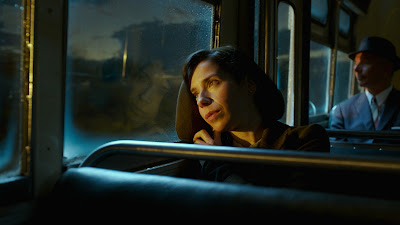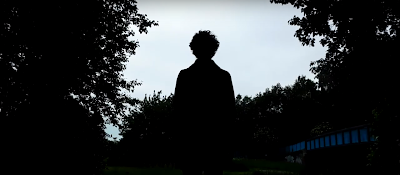Shoplifters
Shoplifters - The Bonds in a Family
What is a family? What makes a group of people a family? Is it something as simple as a connection by blood? Or can it be something much deeper and binding? Hirokazu Kore-eda brilliantly weaves a captivating story that makes us question the traditional concept of family. As we see the lives of a family of thieves unfold before our eyes, we are hit with the realization of what might be the answer to these questions. Through techniques similar to Yasujiro Ozu, Kore-eda shows us through sympathetic lenses a tale of love and struggle for survival that will make your heart ache with emotion. When the film ends, we are left with a hollow space in our hearts where the warmth radiated by this family once was. There is really nothing like it.
As the title suggests, this film is about a group of people who are shoplifters. The film starts by showing us a man and a boy - Osamu and Shota, played by Lily Franky and Jyo Kairi, respectively - stealing from a supermarket. Afterwards, as they are walking back home, they find a little girl called Yuri - played by Miyu Sasaki - outside her house in the cold. They take pity on her and take her home. She is introduced to the family - and so do we. This girl becomes sort of an intruder in the intimate environment of this unusual family of thieves - and like her, so do we. We are invaders, or voyeurs, in this warm intimacy, and Kore-eda brilliantly makes us feel like that through careful placement of the camera as if, like the girl, we are looking at the family shily, without wanting to interfere. After dinner, the family decides to take the girl back to her home, but, as they are approaching it, they overhear an argument between her parents and realize that she will not receive any love in that house. So, they decide to take her in. And as they welcome her to the family, they also welcome us, and we find ourselves being sucked into it and being assimilated by them. This story becomes an intimate portrayal of an unusual family that has more to give than normal families.
We witness their bonding with each other. We witness them going about their lives and their jobs. We witness their ups and downs. And we witness them as deeply flawed human beings. Kore-eda doesn't try to hide this fact - this isn't a perfect family or an ideal family, and that isn't the intention of this film. Every individual is flawed in their own way and they all have selfish intentions and actions in their own way. And they mostly live off of the retirement money of Hatsue - the "grandma", played so lovingly by the lovely Kirin Kiki (rest in peace) - and from what they shoplift, which can't be considered a noble or ideal lifestyle. However, despite their flaws, we feel the deep love they hold for each other and the deeply tightened bonds that connect all of them - be it in the sweet exchanges or the mean comments between each other, their link is extremely strong. This is most noticeable in one of the most moving and contrasting scenes of the film. Most of the scenes in this film feel cluttered and even claustrophobic. But then there's a scene that is the opposite of that. One day the family goes to the beach, and we experience a moment of happiness and bliss. They act like a truly happy and normal family, and it's so heartwarming to see that. (if you haven't watched the film yet, go watch it and then come back to this. Don't continue any further, I don't want to spoil anyone)
However, something unexpected happens.
Shota (the boy) is caught after breaking his leg running away from the security guards of a supermarket. And then everyone in the family is apprehended by the police. We find out that everything had been a scheme put up by Osamu and Nobuyo - the "mother", played by Sakura Andô, arguably the best performance in the film - after they killed her ex-husband - perhaps to create a certain love they were lacking. Nobody was even related by blood, as we might have thought - this was a very shocking realization for me. And as Yuri is sent back to her parents we realize something. She is sent back to her "real" family, as it's socially demanded, however, she loses all the love she had felt. In a heartbreaking scene, she goes to her mother and is faced with a cold dismissal, as if she were a mere nuisance - a treatment she never received in her "adoptive" family.
And here is the big lesson Kore-eda teaches us. A good family is not necessarily a group of people connected by blood - a good family is a group of people that have bonds that are so deep that they transcend any biology. It's caring for and about someone unconditionally. And that is what we find in this family of thieves. Even though they have an ethically questionable lifestyle, Kore-eda doesn't judge them. They aren't thieves because they want to, they are thieves because of societal conditions, and Kore-eda is deeply compassionate about them in the way he portrays them. They were a family out of the ordinary, but they gave love to each other and made each other's lives bearable. And that is what a true family is supposed to be.
As Yuri looks on longingly into the distance, looking for the love she has lost, we realize that blood isn't what makes a family. Love is.
This is a beautiful and intimate tale that teaches us an important lesson: Family can take many forms, but there is something that needs to have, and that is love. This is an important lesson for our modern world in so many ways, and this is a modern take on what is a family. What makes a family isn't who is in the family, it's the love present in the relationships between its members. Kore-eda deals with this issue with such moving delicate tenderness that it's impossible not to have tears welling in your eyes as we see this family inevitably being torn apart by outside forces. There is such a loving warmth that exudes from this film, making the film both heart-breaking and heart-warming. It's truly an experience of bonding with a family of complete strangers. And an unforgettable one.




Comments
Post a Comment